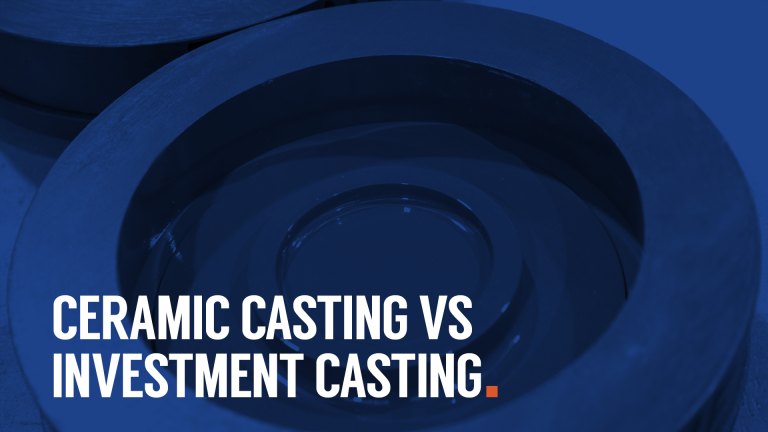Ceramic filters are one of the most preferred types of filters for foundry processes and with good reasons. However, just because they are used widely doesn’t mean you should take up their use with no questions asked. In this article, you will learn more about ceramic filters so you can decide if they are a good fit for investment casting. Let’s get started!
What’s Investment Casting?
Investment casting, also known as lost wax casting or precision casting, is a manufacturing process that uses wax to create a disposable ceramic mold. The wax is formed into the exact shape of the item to be cast, and then it’s coated with ceramic material that is later hardened.
Once the mold is fully formed and hardened, the wax is melted and drained out (thus the name lost wax). Metal can now be poured into the metal casting. When everything is cool and ready to go, the ceramic mold is broken off the metal casting which is the final product. But what’s the significance of ceramic filters in this process? More on that below.
Ceramic Filters in Investment Casting
While investment casting is a high-precision manufacturing process, using impure materials can ruin the final product, but proper filtering prevents that from happening. With top-tier ceramic filters for molten metal from a top-performing provider like Holy Filters, you won’t have to worry about issues like impurities or other defects like slag inclusions.
Additionally, high-quality ceramic filters are considerably durable, while requiring almost zero maintenance to keep them performing optimally.
How Do Ceramic Filters Improve the Casting Process?
Not to say that other types of filters are ineffective, but results have shown that ceramic filters are generally superior in casting processes. Here’s how they improve results:
1. Thorough Filtration of Impurities
Ceramic filters that have a honeycomb design are highly effective at eliminating impurities from molten metal, thanks to their high-density, straight-hole design. This design strikes the right balance between flow and strength, ensuring that most, if not all impurities, slag particles, etc., are eliminated. That way, the resulting castings will have excellent mechanical properties, qualification rates, and surface quality.
2. Chemical Stability
At first, it may not seem like the chemical stability of ceramic filters has a significant effect on the resulting castings, but that stability is crucial. The first reason is that the alkalinity or acidity of the molten metal won’t alter the performance of the filters in any way even after multiple uses. Not only that, but the filters won’t change the chemical composition of the molten metal that passes through them, thus you are guaranteed consistent results every time.
3. Scrap Control
Foundries generally had trouble managing scrap at the end of filtration processes, but that issue seems to have been resolved with the introduction of ceramic filters. And since numbers don’t lie, foundries have reported an average reduction in scrap rates by up to 40% and an increase in yields by roughly 10%.
You can attribute this to the clear separation of metal from molds when using ceramic filters, compared to other types of filters.
4. Temperature Control
If you want to achieve optimal casting properties, it’s advisable to have an effective temperature control plan in place. Besides, proper temperature control averts issues like thermal cracking that are known to ruin the final result.
Ceramic filters are made of material that has a desirable thermal mass and conductivity, making it easier for them to absorb excess heat from the molten metal. The result is controlled solidification and a reduced risk of thermal gradients or hot spots. Additionally, the uniform temperature distribution improves the mechanical and microstructure properties of castings.
To Sum It All Up,
Ceramic filters are a good addition to investment casting, owing to the multiple uses and benefits they offer. Not only will they improve the quality of impurity filtration, but they also enhance other seemingly less important factors like flow control, gas removal, and temperature control, all of which contribute to superior results.
So if you’ve been wondering whether ceramic filters are a good addition to your foundry processes, the answer is a resounding Yes!
Keep reading such informative contents at OurYourHome.com
